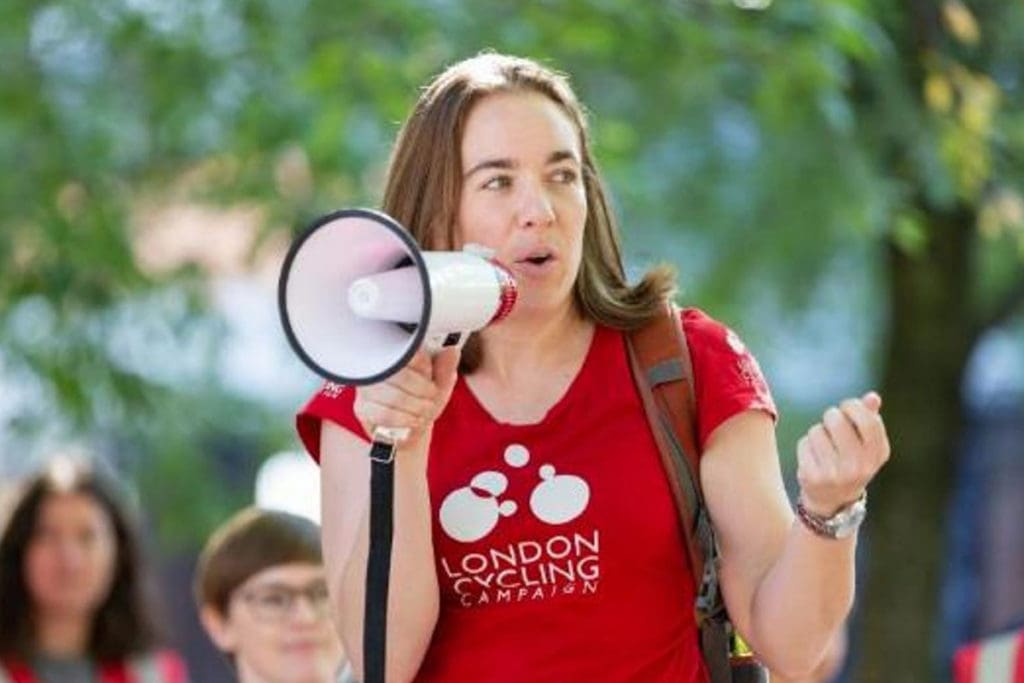London Lessons Bring Clear Steps for Accelerated Transport Transition

Sydney, NSW
Transforming cities towards sustainable transport can be accelerated considerably if advocates employ a number of proven and easily replicated tools and actions, according to a city transitions expert behind an active transport success story in London.
City transformation and transition specialist Megan Sharkey was on the board of the London Cycling Campaign and will explain the tools and templates used by the Better Streets campaign, Low Traffic Neighbourhood campaigns and other active transport activists, when she delivers two presentations at Australia’s inaugural Micromobility Conference & Expo.
“You don’t need transport, planning or other specialist knowledge, you just need to want to change your street for the better. Accelerating micromobility transitions doesn’t need to be difficult.”
Megan – a former Urban Studies Research Scholar at the UK’s University of Westminster and now an Adjunct Lecturer at the University of NSW’s School of Population Health – has been confirmed as one of the several high-profile keynote speakers at the conference, being held at Sydney’s Royal Randwick Racecourse on the 25th and 26th November.
The US expat and Doctor of Philosophy in Transport Planning, Policy and Politics will deliver a keynote presentation about the fundamentals and best tools for effective active transport transitions and campaigns, using a new Australian-focused Better Streets programs as an example – as well as her own Framework for Change for the London Cycling Campaign.
Megan will then conduct a workshop to teach those fundamentals, breaking down the campaign framework “into simple parts that can be used by anyone and can be implemented now”.
“You don’t need transport, planning or other specialist knowledge, you just need to want to change your street for the better,” she says.
“Accelerating micromobility transitions doesn’t need to be difficult.”
Megan’s keynote address and workshop will illustrate the role of grassroots movements in the social and political changes required for sustainable socio-technical transitions, such as the rise of active transport to boost the sustainability, health and connectivity of urban and town centres and their communities.

“Across the globe we are seeing social, cultural, and infrastructure changes towards a new transport paradigm that puts pedestrians, bike riding and micromobility first,” she said.
“The framework makes it simpler to build a movement and coalitions, to create measurable goals and visions, and understand who can change policy and infrastructure.”
Backed by her experience with the London Cycling Campaign and other active transport and urbanism initiatives over the past 10 years, Megan and other advocates are creating a NSW Better Streets program which will be officially launched at the Micromobility Conference.
A national Better Streets program is also being establish simultaneously.
She said Better Streets provides a framework to help advocacy groups, businesses, GPs, schools and others organisations replicate the successes of cities in other parts of the world, to move more quickly and effectively towards safe, healthy, climate-friendly and people-friendly streets.
“The framework makes it simpler to build a movement and coalitions, to create measurable goals and visions, and understand who can change policy and infrastructure,” she said.
She will show how specific actions can speed up or impede a shift towards micromobility and how understanding those influences can assist the overall pathway to sustainable transport.
Megan has developed numerous programs that have brought meaningful action for sustainability and the improved health of cities and their communities.
She attributes that success to “building coalitions, being inclusive and connecting bottom-up action with policy and infrastructure change”.
“We can’t do this alone. Our success is connecting diverse people and groups to doing action together,” she said.
The success of the London campaign led to the proliferation of more than 20 Better Streets groups throughout London, Britain and NZ, plus more healthy streets groups using the Better Streets campaigners’ handbook.
In 2020, Megan authored an internationally recognised report, Micromobility And Active Travel In The UK: The Rise of Smaller Modes, and Resulting Infrastructure, Safety and Regulation Implications.
The 2022 Micromobility Conference & Expo will feature presentations by many of the industry’s top business operators, lobbyists, academics and technical experts, to share and discuss ideas and the latest developments in the booming active transport sector.
Megan will be presenting as part of the Making it Happen Theme (behaviour change) on Saturday 26th November. Volunteer advocates are eligible to a 40% discount to attend this theme which is shown as an option on the registration form and can also contact phil@micromobilityconfrerence.com for a discount code for the overall two day conference.
Find out more about the 2022 Micromobility Conference, register to get involved or see all attractions at the accompanying Micromobility Expo.
Find out more about Better Streets, or join the Better Streets movement.
Join the Conversation
What do you believe are the key tools to accelerate the transition to micromobility?

great!